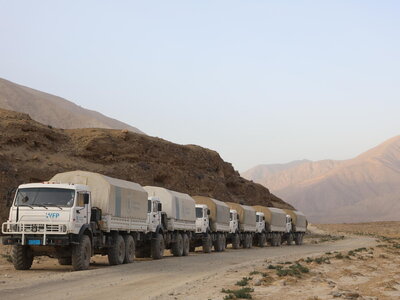Afghanistan
- 9.5 million
- people are severely food insecure
- 4.6 million
- mothers and children are malnourished
- 46 million
- population
Afghanistan remains one of the world’s most severe hunger crises, with one in five people not knowing where their next meal will come from.
Afghans continue to grapple with the consequences of four decades of conflict, compounded by an economic crisis, entrenched poverty, frequent environmental disasters, and increasingly erratic weather patterns and recurrent drought.
The country is experiencing the sharpest surge in malnutrition ever recorded, with 3.5 million girls and boys under 5 expected to be malnourished in 2025 – half a million more than last year. This is in addition to 1.2 million malnourished pregnant and breastfeeding mothers, who urgently need treatment.
Women and girls are disproportionately affected by the hunger crisis, as they are being pushed further to the fringes of society. The World Food Programme prioritizes women-headed families and continues to reach women and girls across the country with life-saving assistance.
What the World Food Programme is doing in Afghanistan
-
Emergency response
-
WFP delivers life-saving emergency food assistance to families facing multiple compounding vulnerabilities, many of whom have no other means of survival. Nine out of ten heads of households selected for assistance are illiterate, one in five are widows and one in ten are living with disabilities. Women and children make 80 percent of those reached. WFP further treats malnourished mothers and their children in clinics. We help prevent malnutrition and stunting, distributing specialized nutritious food to families with children and providing emergency food assistance to mothers.
-
School meals
-
Resilience and livelihoods
-
Social protection
-
UNHAS
-
Additional support
Afghanistan news releases
Go to pageFind out more about the state of food security in Afghanistan
Visit the food security analysis pageOperations in Afghanistan
Contacts
Office
---
Kabul
Afghanistan






